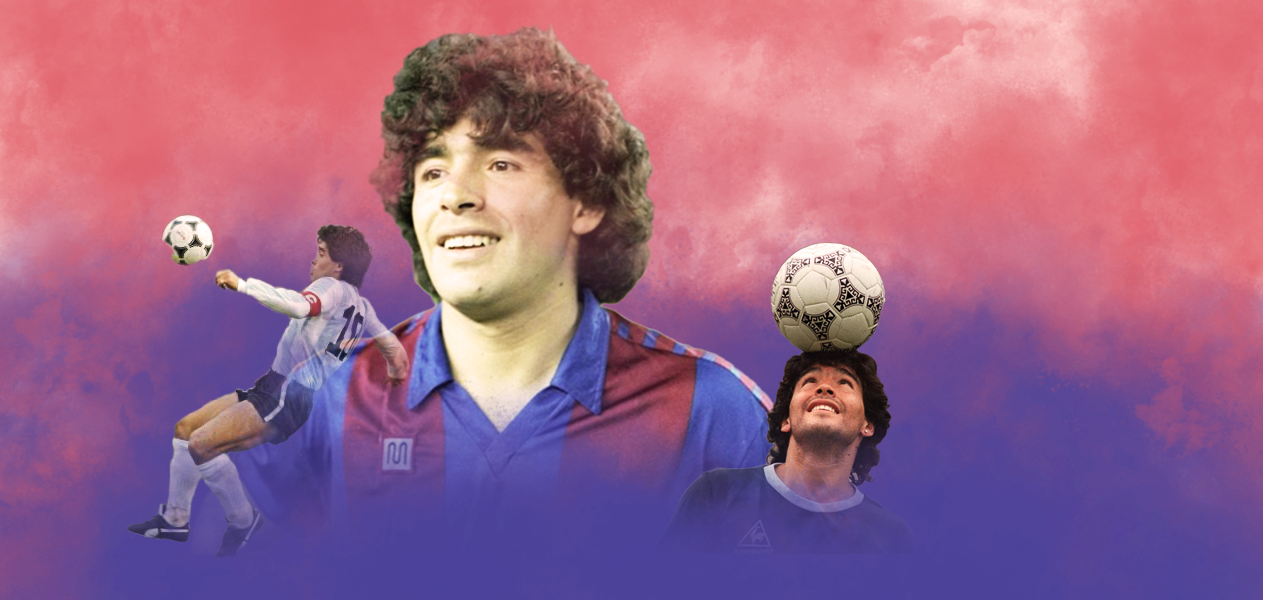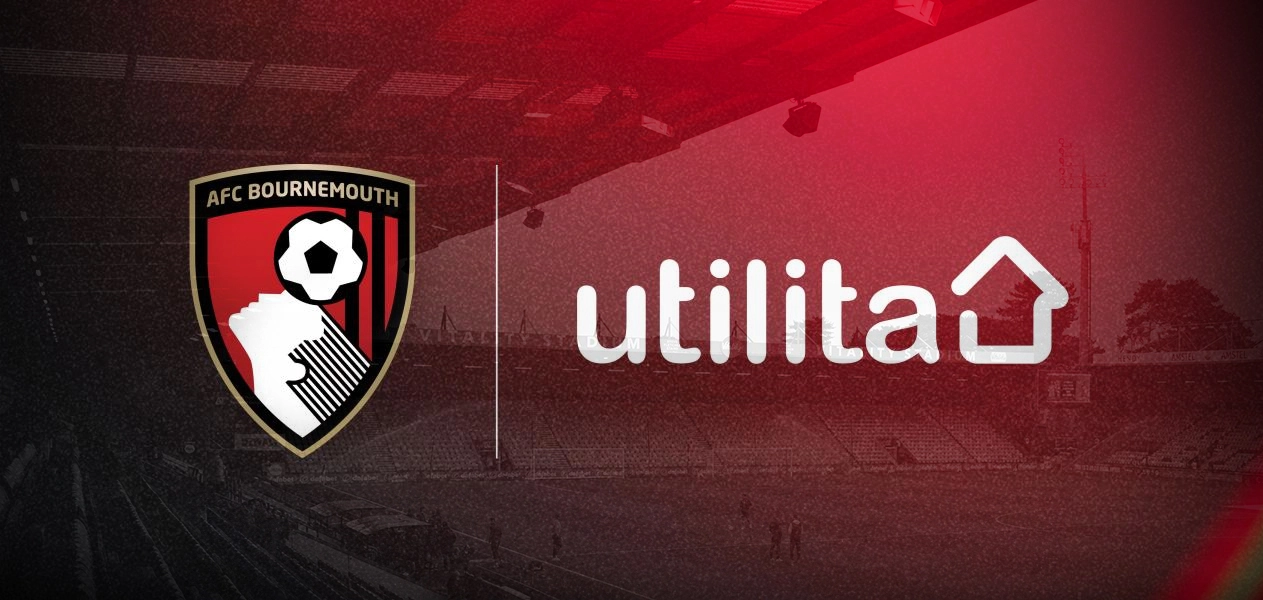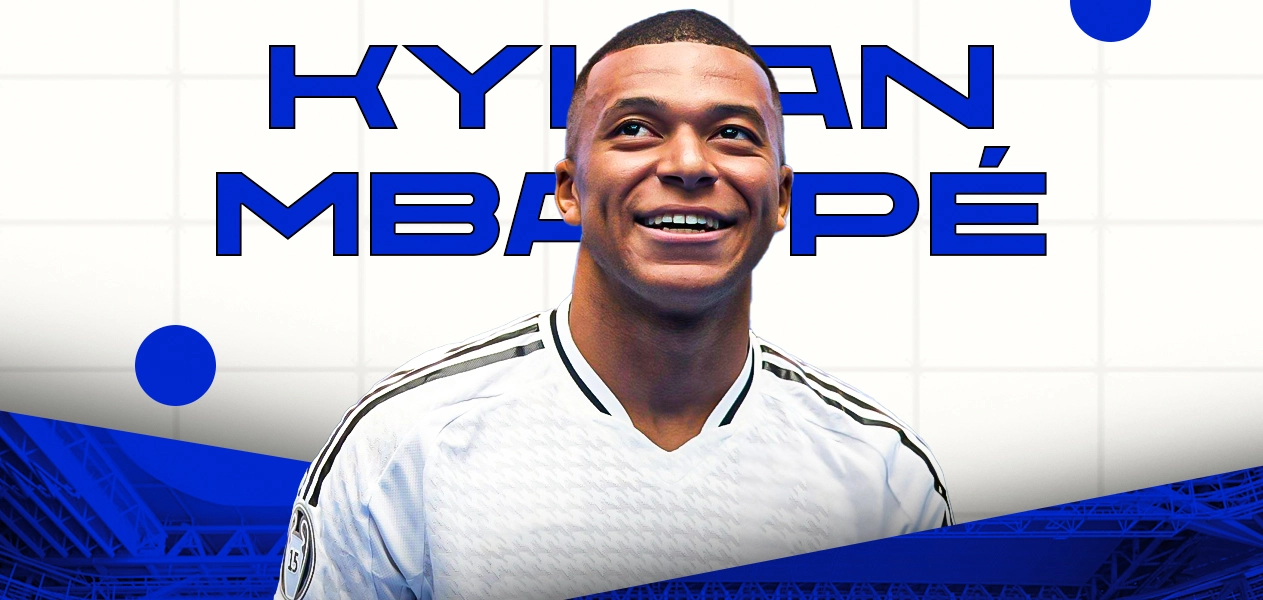There was Diego – the diminutive, exhilarated kid who found solace in juggling on his feet anything he could find. There was Maradona – the flawed, larger-than-life persona that he had fabricated to deal with the outside world; the persona that took over him, piece by piece. Then there is his legacy – the legacy of Diego Armando Maradona, that transcended his life and will most certainly transcend ours. But what is his legacy?
INTRODUCTION
Last week, less than a month after celebrating his 60th birthday, Diego Maradona passed away. Despite the life he lived, his age felt young. Despite the health problems that had seemingly felt to have taken the better of him long ago, his death felt sudden. Erred in his humanity, yet divine in his legacy, Maradona became eternal in ubiquity that transcended the sport, locales, and generations.
As I pen this article, I am fully aware that there is very little about the man that hasn’t already been scrutinised, written and discussed beyond count. And yet, as I write this, I try to explore why he means as much to the people as he does, and why, albeit cautiously, his is a story warranting multiple takes. In a way, this is my ode to Maradona – the man I never knew, but the name we all do.
THE BOY WHO WAS PROMISED
In reference to the personified image of the soul of Argentinian football, Borocotó, editor of the Argentinian magazine El Gráfico, described “a pibe [urchin] with a dirty face, a mane of hair rebelling against the comb; with intelligent, roving, trickster and persuasive eyes and a sparkling gaze that seem to hint at a picaresque laugh that does not quite manage to form on his mouth, full of small teeth that might be worn down through eating yesterday’s bread.
“His trousers are a few roughly sewn patches; his vest with Argentinian stripes, with a very low neck and with many holes eaten out by the invisible mice of use … His knees covered with the scabs of wounds disinfected by fate; barefoot or with shoes whose holes in the toes suggest they have been made through too much shooting. His stance must be characteristic; it must seem as if he is dribbling with a rag ball.”
Reading this in isolation, you would think of Borocotó merely paying homage to Maradona by calling him the personification of the soul of Argentinian football. Funnily enough, Borocotó wrote this in 1928, thirty-two years before Maradona’s birth and nearly half a century before he made his debut for Argentina. He was not only a talent recognised early in his life; he was a prophecy fulfilled.
When Argentina reached the semi-finals of the 1990 FIFA World Cup, they were pitted against Italy, in Naples – the city Maradona had conquered and made his home; the city he was increasingly falling out with.
When Diego made his debut for Newell’s Old Boys in 1993, the club introduced to the crowd a young six-year-old kid at half-time, called Lionel Messi.
His story is nothing short of a carefully written script, slotted within the spontaneity of history.
Growing up in Villa Fiorito, Buenos Aires’ largest slum, Maradona honed his footballing trade on the streets. He was a rebel since childhood – an anti-establishment figure, for whom rules were not something to adhere to, rather some obstacles to dribble past to get what he wanted. Scouted by Argentinos Juniors at the age of 8, he was subjected to pharmaceuticals to be accelerated out of malnourishment, and a matter of coverage from the national press by the age of 11. Fascinating thing hindsight is, as these instances foreshadow rather poignantly how his life was to turn out.
Also read: Can FC Barcelona’s financial nightmare lead to their crushing fall?
MARADONAPOLI
Maradona’s time at Napoli holds import in many ways. Naples is not only where he stayed for the longest, it is also the city that resonated with him more than anywhere else. This is the chapter that not only saw him reach his peak, but also embark on his eventual downfall.
By the age of 15, Maradona was already earmarked to be the salvation of Argentinian football. His agent had him followed with cameras way before it was commonplace to do so, as Diego went about speaking about himself in third person. He had already created for himself the persona that he knew he needed to deal with the omnipresent fame that would follow him around; the persona he would eventually give in to.
Maradona’s arrival at FC Barcelona was supposed to be his big break. He was the most expensive player of his time, already regarded as one of the best, so on paper things should only have gone one way – up. While he didn’t play particularly badly for the Blaugrana in his two years at the club, it is clear in the retrospect that the marriage could not have lasted long. You see, Barça was a prestigious club with a reputation to uphold. There needed to be an order to the way things were done at the club, and Maradona had no time for any of that. He was a rebel who liked to bend the rules, do things his way and get whatever he wanted. Many of the club’s directors already felt that his off-pitch antics weren’t worth tolerating for his on-pitch genius, so when ahead of the 1984/85 season Barça’s coach Cesar Luis Menotti claimed he could win the league and put an ultimatum in front of the club – either Maradona was sold, or he’d leave – the club chose Menotti. It is to be noted here that Monetti was the one to not pick a young Diego for the 1978 FIFA World Cup in Argentina, that Argentina won, deeming him to be too young at the time. For Maradona, the fact that Menotti was responsible for him not being part of the national side that won the Cup at home stayed with him long after. While Monetti lost his job at Barça not long after Maradona’s departure, he was indeed proved right when Barça won the league.
Naples was one of the poorest cities in Italy, if not Europe. Chastised for its poverty with almost unabashed racism, Naples was the subject of vilification and beratement by the rest of Italy, still reeling with the ramifications of an earthquake from not more than four years before. It was a city with mafia clans, corruption and substance abuse running amok – a city one would rather want to run away from. On the football front, the city’s sole representative, SSC Napoli, were down to its barebones; anything but a competitive, league-winning side. So, when Diego Maradona walked into the press room of a claustrophobic Stadio San Paolo, covered by reporters as fans cheered him on through a gaping hole in the roof of the room, everyone was bewildered. Italian football was at its peak in the 80s as its northern giants – Juventus, Milan and Inter – ruled not only domestically, but continentally, so only few could make sense of why the best player in the world would move to seemingly one of the worst clubs in the league. This is not the first time Napoli broke the bank for a player, but even they couldn’t have fathomed the extent to which Maradona would become the face of the club and the city in the years that followed.
Naples struck a chord with Maradona in a way no other city could. Perpetually looked down upon by the upper echelons of the Italian society, told to stay in her place, mocked for her appearance, Naples appealed to the rebel in the guy who loved to go against the grain, who’d challenge the Pope to melt the Papal gold to save the destitute, one who would not run away from the snobbery of the order that claimed to be the righteous. Naples became home to Maradona, so in turn he became her soul. He understood the city in a way no outside player of his stature ever did.
Through Maradona, Naples bled her heart out on the pitch. Piece by piece, Napoli went on to become a force to be reckoned with. With Maradona in the side, Napoli challenged the established order of Italian football. As he danced through his warmups on the pitch with his laces open and the crowd jeering him, flicking a ball off his ankles like it was child’s play, Maradona made his and Napoli’s message clear – that they were there not to mull, but to enjoy themselves. They were not going to be put down by the vile jabs, rather defiantly challenge whatever obstacle came in their way. They were to be feared. They were to be respected.
With Napoli, Maradona won the Serie A in 1987, an achievement he claimed was more important to him than the World Cup triumph from the year before. From here on, however, things started to take a downturn. Despite the love Maradona and Naples had for each other, he never stopped being a rebel. He still hated training, went out late night to one of his liaisons and delved in alcohol and drugs. He was even believed to be entangled with the Neapolitan mafia, Camorra. He had become father to a son outside marriage; a son he would deny for the next thirty years, that pained him immensely, given how much he craved for one. The same attention that enamoured Naples to him started suffocating him. Diego started relying on Maradona evermore to get him through the days. It was only on the pitch that Diego found peace, and it was all starting to take a toll on him.
After Napoli won the UEFA Cup in 1989, Maradona publicly announced his desire to leave. This was outright rejected by Corrado Ferlaino, the then-President of Napoli. Maradona’s frustration had started to turn into anger. The people were beginning to be fed up with his shenanigans. The cocaine and injuries that were boiling just under the surface were threatening to unveil themselves to the world in all their glory. Maradona continued to play through it all with an incessant dependence on painkillers to help him through the pain. Napoli did end up clinching the Serie A title in 1990, but it was not the same. Never again, could things be the same.
Maradona’s love-hate relationship with Napoli reached its climax at the 1990 FIFA World Cup. As his Argentina knocked Italy out at the Stadio San Paolo, Naples became the epicentre of the conflicted emotions the Neapolitan public felt in their adulation for Maradona pitted against their national identity. As Maradona’s struggles exacerbated, further he went away from the club and the city. He became alone. What had been a marriage of unprecedented highs ended in irrevocable misery, as Maradona left Napoli with a 15-month ban after failing a drug test for cocaine. What was pretty much known to the world already had now gone public. Maradona would never be the same again. Napoli would never be the same again.
Despite the end, the legacy Maradona established in Naples is unmissable and undeniable, with songs written in his name echoing through the walls that hold his murals. Napoli had long retired the number 10 jersey in his honour and are in the process of renaming Stadio San Paolo in his name, ensuring that Maradona remains in Naples – in presence and in memory.
THE HAND OF GOD
Regardless of what you make of him, you cannot deny the fact that the 1986 World Cup was Maradona’s and Maradona’s alone. It was his magnum opus; the fulfilment of a prophecy made long before his birth. To say he ran the show during the tournament would be a massive understatement. He was the Golden Ball winner, as the world lay witness to his skill and his wit.
The ’86 World Cup was perfectly set for Maradona. He was part of what was considered, both in Argentina and elsewhere, a very weak squad. The Argentine press barely cared to show up for the tournament, as no one gave their team a prayer. The country was reeling from a military dictatorship that had just ended and was crying for something that could unite the people once again. Like I said, perfectly set for the man we all know loved to set the general order of things ablaze.
In a way, Maradona’s entire story can perfectly be encapsulated within Argentina’s quarter-final win over England, a match that has gone down in history not for the result, but for the symbolic importance that came with it. Between the two countries, the relations were as bad as they could possibly be, as Argentina felt humiliated by the betrayal of its military junta in lieu of the defeat in the Falklands War by the hands of the British. The underlying history between the two sides all but accentuated the contrast between their ideologies. Argentina had a brilliant opportunity to raise a proverbial two fingers to the English and nick a classic underdog win. Instead, Maradona raised a hand.
Diego Maradona never denied deliberately scoring that goal with his hand. He didn’t care what the world called him for it. For him, it was a moment of cunningness, to not only deceive the players but the referee; the referee that represented order on the pitch; the same referee that allowed opposition players to hack him into pieces, because there was no other way to stop him. He used to call it an act of God, who flew through him on the pitch to not only score the goal, but make sure that it stood. Such gargantuan is this moment etched in history, that every time we think of the ’86 World Cup, we think more readily of the Hand of God than the brilliant, solo goal Maradona scored mere moments later. Two moments. Two goals. Two instances to sum up Diego Maradona.
Also read: The importance of Marcelo Bielsa
THE OTHER SIDE
For all the talent Diego Maradona was bestowed with, he was never prepared for the life it would bring. He became the leader of his family by the time he was 15, meaning a part of him always remained a child; a child that craved for peace and love. As the years went by and he became a God amongst humans, it became harder for him to keep his private life separate from his public one. Diego became more and more reliant on Maradona to survive, and paid his price by eventually giving in to the proclivities Maradona indulged in to get by.
Maradona always wondered how much better his career would have turned out were it not for his cocaine addiction. Towards the end of his Napoli years, there were times he would come home and hide in the bathroom to avoid his daughters seeing him in his state. Maradona also forced Diego to keep his son at bay for nearly three decades, whom he longed to connect with. Cocaine was the price he paid to deal with the life he was unprepared for. Cocaine was what brought his career to a tragic end.
As per Maradona, all the kicking he endured in his playing days started taking its toll on him well over thirty years ago, as he played through the pain he suffered in his knees and back by heavily relying on painkillers. He also suffered with massive weight issues during and after his playing days, as his appearance would drastically change every few years. Towards his final years, his health issues had evidently started to get the better of him as he would always be accompanied by people wherever he went, almost unable to walk by himself.
His health, however, could not take him away from the one thing he truly loved – football. He never had an illustrious managerial career, but his persona was more than enough for clubs to take a punt on him. After all, you need a lot of gusto to turn Diego Maradona down. From Fujairah to Sinaloa, Maradona popped up in most remarkable of places. He led Argentina to the quarterfinals of the 2010 World Cup, in what can be called his biggest managerial accolade. Till his final days he remained in management, coaching Gimnasia de La Plata.
PEACE, AT LAST
Is Diego Maradona the greatest of all time? Well, I better not get into that debate right now. Sure, the likes of Lionel Messi and Cristiano Ronaldo have long surpassed the numbers he created in his time, but if numbers were the only thing we judged players by, then I wouldn’t be here writing this piece and you wouldn’t be here reading it. However, given the quality of pitches Diego played on and the extent to which he was unprotected both on and off them, many would argue he genuinely is, the best ever.
As we remember Diego Armando Maradona, it is important to remember that he was, by no means, a perfect person. In many ways, his story is a tragedy of Shakespearean proportions, but it’s his hamartia that in contrast, throws a brighter light on his genius. His career has served as a precedent by which the players are able to protect themselves both on and off the pitch. His story has served inspirations to many legends that have come after him. You don’t have many footballers whose autobiographies substitute the Bible for couples to take their marriage vows over. His imperfections made him relatable to the people; his football elevated him as a deity.
A divisive figure his whole life united in death the millions of souls he touched. Many great personalities will come and go, but without a shadow of a doubt, never shall there be another Diego Armando Maradona.
Rest in peace, Diego. At last, you’re home.






Leave a Reply